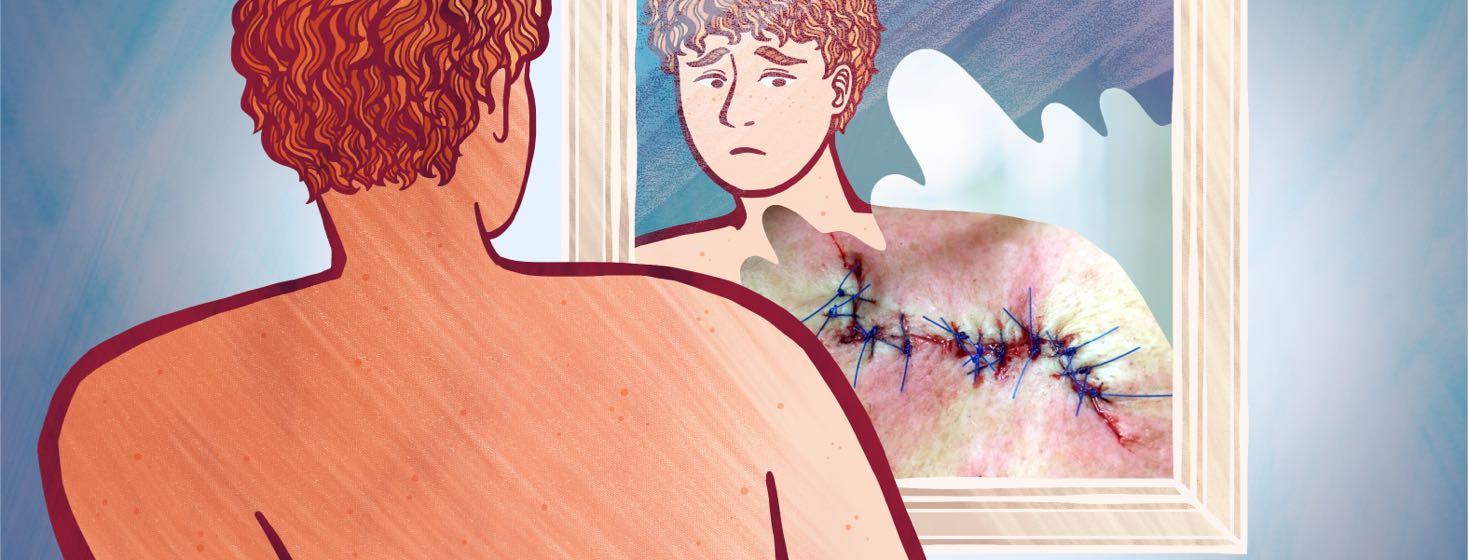Preparing for Skin Cancer Surgery
Let’s face it: skin surgery can be traumatic. The thought of a nearly-complete-stranger removing parts of my skin makes me cringe. It makes me feel so out of control and helpless. Oh, I completely understand the health benefits of excising cancer cells found in my skin. I know that it will make me healthier in the end. It still stinks.
Here is why skin surgery is different than other surgeries I have had
- It affects more of my outward appearance and is often in the most visible places.
- It affects more sensitive nerves.
- It may involve skin grafts or open wounds.
- It may require more surgery in nearly the same location because margins were not clear.
- Surgical procedures seem to be part of the skin cancer lifestyle unfortunately.
- It is perceived as less critical by many who don’t understand the serious nature of skin cancer.
- It can heal very slowly or never really feel or look fully healed.
- These are a few of the ways that skin surgeries seem very different than other surgeries.
Based on these differences, here are a few things that I would like to share about preparing for skin surgery
- Pay attention to your nutrition and hydration. Overall better health can affect skin surgery outcomes. Destress and get rest, if you can.
- Anticipate sleep disruptions. The surgical site will like be sore and may be over a fairly large area. Whether you need a new pillow or a mattress cover, prepare ahead. Sometimes sleeping on a recliner is more comfortable.
- You may need to be sedentary for a short bit.
- Grab a book, binge watch Netflix or Zoom with friends and family. Find someone to prepare meals for you or take you around, if possible. Call on others to help with chores. Take good care of you.
- Clear your schedule. Take time off of work and don’t rush back. The work will be there when you return.
- Understand your allergies and sensitivities. Many people are allergic to latex, certain bandages and ointments. It would be helpful to know this BEFORE your surgery rather than after. Ask your doctor what they plan to us on you and test it beforehand.
- Prepare yourself mentally. Your appearance will be different even if for a short while. Stitches and bandaging may take a while to be removed. There may be scarring and in some cases further surgical procedures may be needed to help with any changes in appearance.
- For some skin cancer surgery can be life altering. I try to remember that I am not the sum of my looks. My “inner” me is ME.
- Ask others who have had the same procedures about what helped them. Reach out to others in our community. I have seen so many people who are willing to help. You are not alone.
Preparation is key
One of my favorite people was former UCLA basketball coach John Wooden. He always preached preparation with his teams but more importantly in life. I think that preparing for skin surgery and managing expectations will go a long way in recovery and good outcomes. Find your support team and find a way to give back by helping others as they prepare for their own procedures.
What do you do to prepare for skin cancer surgery?

Join the conversation